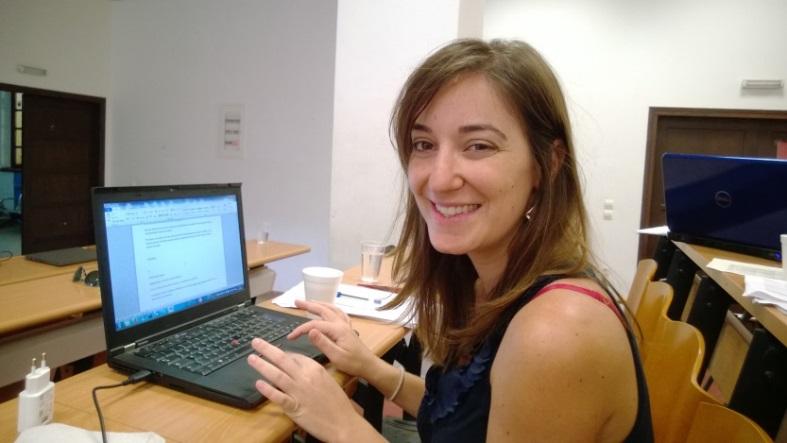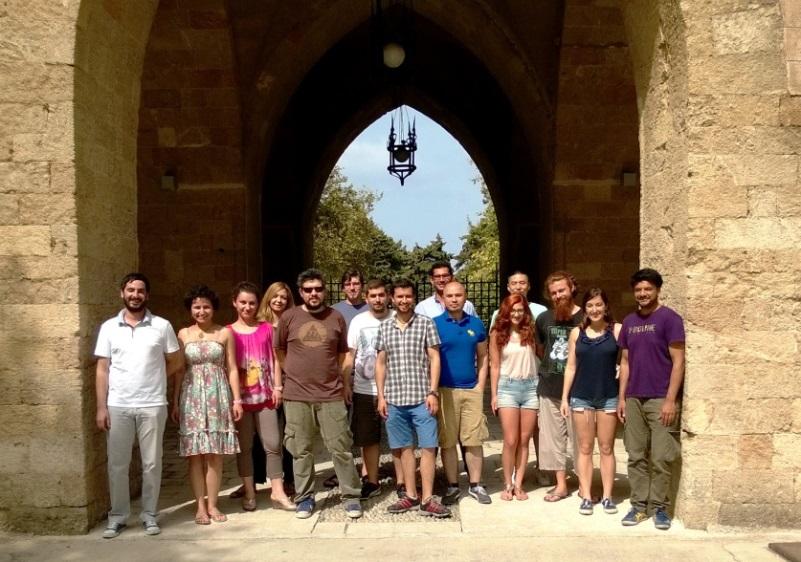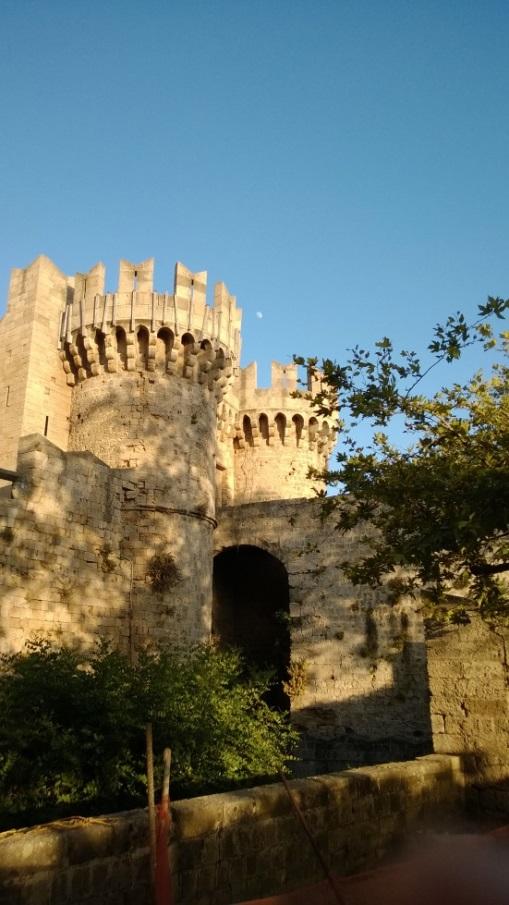Page path:
- Graduate School GLOMAR
- PhD student reports
- Other activities
- Sara Miñarro
Sara Miñarro
Report of GLOMAR PhD student Sara Miñarro about her participation in the University of the Aegean Summer School on Big Data Analysis in Earth Sciences, Rhodes, Greece, 7 – 11 July 2014
Recently I had the chance to participate in the summer school on “Big Data Analysis in Earth Sciences” organized by the University of the Aegean on the island of Rhodes, Greece.
My motivation to take this course was to learn methods and tools for handling large and complex datasets such as the ones required for performing integrative ecological modelling, the topic of my doctoral work. In order to develop an individual-based model for coral reefs, I need to handle large amounts of data at different stages. To design it, I need to synthesize available knowledge on the ecosystem processes being represented, and sometimes this is accomplished by analyzing large environmental datasets. To validate the model, I must compare the trends in its simulations to long-term series of real data. For that, I need to find, filter, harmonize, classify, and analyze large amounts of data from different sources and kinds, in order to be able to compare them. Finally, simulation runs produce large amounts of multi-dimensional data which need to be processed to understand model results. Given my limited knowledge in dealing with big data, I thought this course would be a useful training for increasing the scientific quality of my project.
The course took place in the part of the University of the Aegean located in the historically rich city of Rhodes. It was organized as a series of lectures with several hands-on practical sessions in the afternoon. The lecturers, coming from different European institutions, companies and universities, were all experts in their respective fields and made their talks extremely interesting by adding their personal experiences. The topics addressed were quite practical, such as determining the infrastructural needs for dealing with big data, data mining of time-series, error checking and data curation, or the analysis of big data to mitigate climate change related effects by, for example, developing drought warning systems. A lot of weight was given to the use of sensors and the data they can provide to create, for instance, smart cities (http://www.smart-cities.eu/) and the internet of things (http://www.forbes.com/sites/mikekavis/2014/07/21/dont-underestimate-the-impact-of-the-internet-of-things/). Although a bit off-topic for me, these talks gave me new ideas on options for gathering coral reef spatial data in my upcoming fieldwork.
The main practical sessions were focused on big data visualization tools, and on calibration and parameter sensitivity analyses for modelling purposes. These were the ones I found most beneficial for my research, and I look forward to put all those tools and methods in practice.
In general, attending this summer school has had a positive impact in the way I think about big data. Although it was not as focused on natural sciences as I expected, I have discovered many aspects of data science that were unknown to me. This will make me design my future fieldwork and sampling campaigns carefully taking into account the answers I would like to get from the data, and how I will need to analyze them. Moreover, the quality and experience of the speakers made it a very enriching course worth attending. I would like to thank GLOMAR for the financial support to attend this summer school in such a beautiful venue.
My motivation to take this course was to learn methods and tools for handling large and complex datasets such as the ones required for performing integrative ecological modelling, the topic of my doctoral work. In order to develop an individual-based model for coral reefs, I need to handle large amounts of data at different stages. To design it, I need to synthesize available knowledge on the ecosystem processes being represented, and sometimes this is accomplished by analyzing large environmental datasets. To validate the model, I must compare the trends in its simulations to long-term series of real data. For that, I need to find, filter, harmonize, classify, and analyze large amounts of data from different sources and kinds, in order to be able to compare them. Finally, simulation runs produce large amounts of multi-dimensional data which need to be processed to understand model results. Given my limited knowledge in dealing with big data, I thought this course would be a useful training for increasing the scientific quality of my project.
The course took place in the part of the University of the Aegean located in the historically rich city of Rhodes. It was organized as a series of lectures with several hands-on practical sessions in the afternoon. The lecturers, coming from different European institutions, companies and universities, were all experts in their respective fields and made their talks extremely interesting by adding their personal experiences. The topics addressed were quite practical, such as determining the infrastructural needs for dealing with big data, data mining of time-series, error checking and data curation, or the analysis of big data to mitigate climate change related effects by, for example, developing drought warning systems. A lot of weight was given to the use of sensors and the data they can provide to create, for instance, smart cities (http://www.smart-cities.eu/) and the internet of things (http://www.forbes.com/sites/mikekavis/2014/07/21/dont-underestimate-the-impact-of-the-internet-of-things/). Although a bit off-topic for me, these talks gave me new ideas on options for gathering coral reef spatial data in my upcoming fieldwork.
The main practical sessions were focused on big data visualization tools, and on calibration and parameter sensitivity analyses for modelling purposes. These were the ones I found most beneficial for my research, and I look forward to put all those tools and methods in practice.
In general, attending this summer school has had a positive impact in the way I think about big data. Although it was not as focused on natural sciences as I expected, I have discovered many aspects of data science that were unknown to me. This will make me design my future fieldwork and sampling campaigns carefully taking into account the answers I would like to get from the data, and how I will need to analyze them. Moreover, the quality and experience of the speakers made it a very enriching course worth attending. I would like to thank GLOMAR for the financial support to attend this summer school in such a beautiful venue.





